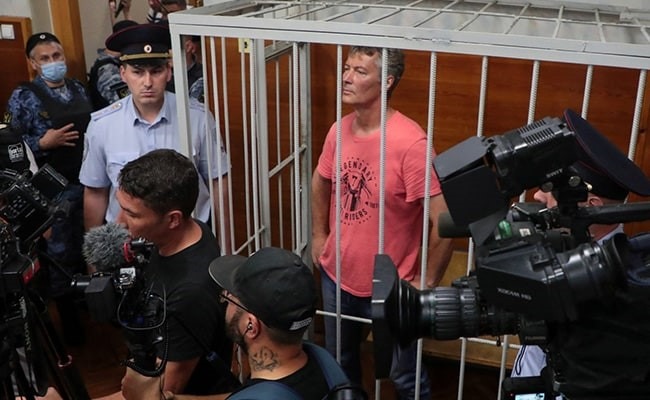| Translate This News In |
|---|
Laws intended to stifle criticism of Moscow’s military activities in Ukraine are being used against an increasing number of Russians.
Here is a look at the laws and their implementation.
After February 24, what new laws did Russia pass?
According to a bill passed on March 4 in Russia, two sections of the penal code now have significant modifications.
According to Article 280.3, “public actions aimed at undermining the use of the armed forces of the Russian Federation” are punishable by fines and prison sentences of up to three years in less serious situations, or five years if there is a resulting risk to life, property, public order, or security.
According to Article 207.3, “public dissemination of knowingly false information about the use of the armed forces of the Russian Federation” is punishable by fines and imprisonment for up to three, five, ten, or fifteen years, depending on the situation and whether the offence resulted in “serious consequences.”
What Sets These Offenses Apart From One Another?
In order to distinguish between the less serious offence of distributing false information and the more serious offence of disparaging the army, the Justice Ministry published a guidebook for investigators and judges this month, according to Russian media.
The guideline, according to the Kommersant daily, defined distributing false news as making a “statement about a false fact” as opposed to expressing an opinion.
What Is the Number of Cases and Prosecutions?
An estimated 3,500 prosecutions for defaming the army have been filed, according to human rights attorney Pavel Chikov, and almost everyone involved has been found guilty. Anyone who speaks out more against the war runs the prospect of facing criminal charges, he added. These are initially classed as “administrative violations,” punishable merely by penalties.
According to the human rights organisation Agora Legal Group, more than 85 criminal prosecutions involving “fake information” have been started as of the beginning of August.
Rights advocates claim that only one and a half weeks after the invasion started, the first case of this kind was filed.
The cases that have been investigated the most prominently so far are listed below.
Yevgeny Roizman, a former mayor of Yekaterinburg, the fourth-largest city in Russia, has been accused of undermining the military after frequently comparing Moscow’s activities in Ukraine to war and an invasion. Until September 29th, a court order prohibiting him from speaking with anybody other than his attorney and close family members, accessing the internet, or attending public events was issued this week.
Former state television journalist Marina Ovsyannikova staged a live protest on air and in a Moscow neighbourhood next to the Kremlin. She has received two fines, and earlier this month, according to her attorney, she was charged with disseminating false information about the armed forces. If convicted, she may spend up to 10 years in prison. She’s currently being held in home arrest.
In a YouTube video about Russian actions in Bucha, close to Kyiv, where Moscow has disputed claims that its forces committed atrocities, opposition politician Ilya Yashin is allegedly accused of lying about the army. He has been in pre-trial detention since June, and if found guilty of disseminating false information, he may spend up to 10 years in prison.
The opposition activist Vladimir Kara-Murza was taken into custody on April 11. Vladimir Putin was “dropping cluster bombs on civilian areas, mothers’ homes, hospitals, and schools,” he had claimed in a speech to the Arizona House of Representatives. For disseminating false material, he is currently in pre-trial prison and could receive a 10-year sentence.
After being found guilty of propagating false information in accordance with article 207.3, Alexei Gorinov, a Moscow district councillor, was sentenced to seven years in prison in July. In March, he stated at a council meeting that children in Ukraine “die every day.”
Journalist for Siberia, Andrei Novashov Realities is a regional initiative of Radio Free Europe in the United States. He published a message regarding the Russian bombardment of Mariupol on his social media profile. He is currently under home detention and could spend up to 10 years in jail.


















